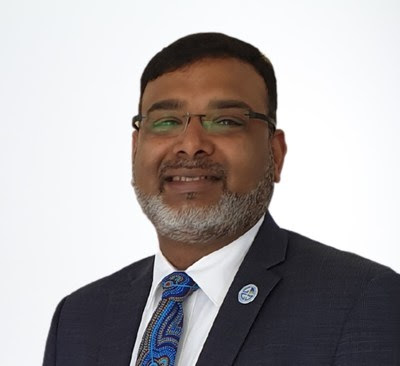MELBOURNE, Australia, July 18, 2022 /PRNewswire/ — Zaffar Sadiq Mohamed-Ghouse, Ph.D., a global geospatial leader, has joined the leadership team at AAM, a Woolpert Company. Mohamed-Ghouse will serve as a senior advisor for strategy and innovation within Woolpert’s geospatial leadership team, further strengthening the global geospatial company’s services and capabilities.

Mohamed-Ghouse brings more than 25 years of experience with international engineering consultancies, working across government, academic, research and corporate sectors. He has held senior leadership roles at multilateral geospatial organisations, including United Nations Global Geospatial Information Management-Networks and World Geospatial Industry Council, and has led multimillion-dollar projects for state and federal government clients in Australia, New Zealand, Malaysia, Indonesia, India, United Arab Emirates and Saudi Arabia. A professor at universities in India and Australia, Mohamed-Ghouse outlines how spatial sciences improve the built environment.
Woolpert’s Asia Pacific Vice President and AAM Managing Director Brian Nicholls said that Mohamed-Ghouse’s extensive geospatial consulting expertise will provide Woolpert clients with tailored, impactful solutions.

“Zaffar has demonstrated his ability to deliver positive change throughout the industry, and we look forward to working with him, learning from him and building on his expertise and experience,” Nicholls said.
AAM was acquired by Woolpert in 2021. Woolpert Senior Vice President Joseph Seppi said the addition of Mohamed-Ghouse provides a strategic advantage for the company and greatly benefits its clients around the world.
Mohamed-Ghouse spoke of the opportunities he sees in joining Woolpert.
“This is an amazing, diverse, multicultural team with varied technical skills and expertise,” Mohamed-Ghouse said. “I look forward to working with this group and expanding our broad service portfolio to advance the geospatial industry.”
About AAM, a Woolpert Company
AAM, a Woolpert Company, is a geospatial technology company, specialising in collection, analysis and integration of geospatial information. AAM believes that digital maps and measurement make our world a better place. By capturing, measuring and presenting geospatial data, AAM helps clients make more informed decisions in an increasingly complex world. Woolpert is the premier architecture, engineering, geospatial (AEG) and strategic consulting firm, with a vision to become one of the best companies in the world. Founded in 1911, Woolpert has been America’s fastest-growing AEG firm since 2015. The firm has 1,900 employees and 60 offices on four continents. Visit aamgroup.com and woolper
Media Contacts:
Steven Henderson, +61 431 090 338, s.henderson@aamgroup.com; and Jill Kelley, 937-531-1258, jill.kelley@
Photo – https://mma.prnewswire.com/
Logo – https://mma.prnewswire.com/
